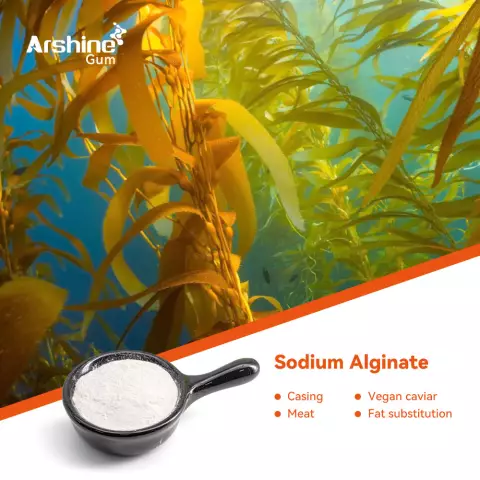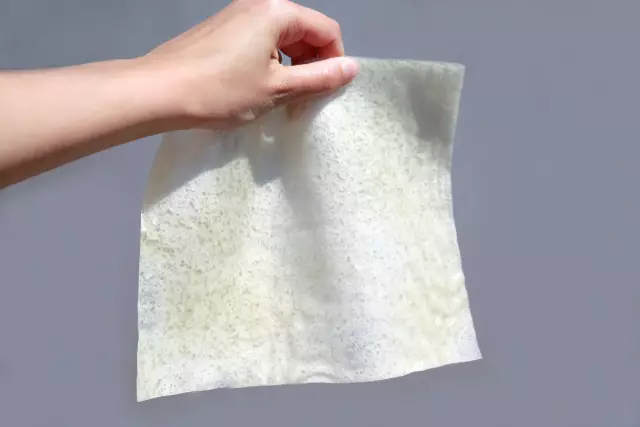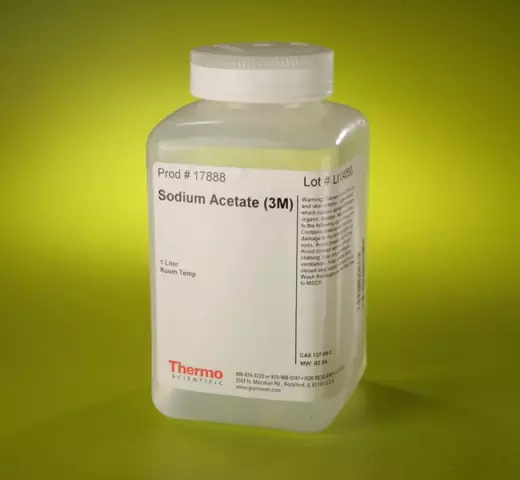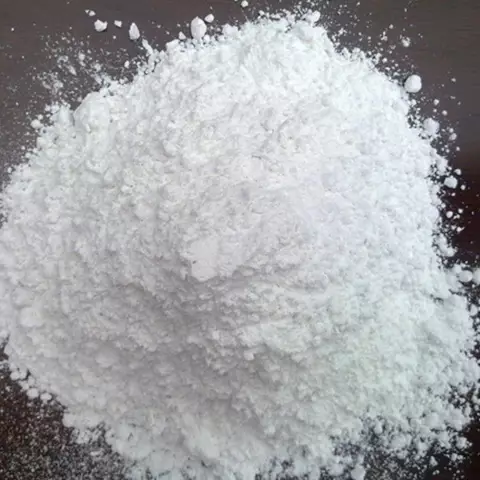- Author Rachel Wainwright wainwright@abchealthonline.com.
- Public 2023-12-15 07:39.
- Last modified 2025-11-02 20:14.
Sodium alginate

Sodium alginate is a naturally occurring polysaccharide, according to its chemical structure, it is a salt of alginic acid. Pure sodium alginate is a light creamy powder that retains water well.
Application of sodium alginate
This substance is widely used in the food and pharmaceutical industries. It is obtained from brown and red algae growing in the coastal zone of Indonesia and the Philippines. In Japan, China, the USA, the main amount of sodium alginate is produced. This substance is obtained by acting on algae with alkali. In technological processes, it is used as a thickener, encapsulating agent, stabilizer, water-retaining agent, and gelling agent.
In medicine, sodium alginate is used as an enterosorbent; it is able to bind well and remove radionuclides and heavy metals from the body. Also, this substance is useful in that it promotes wound healing, lowers blood cholesterol levels.
The property of sodium alginate as a stabilizer is widely used in the production of emulsions, creams and lotions in cosmetology. In the production of some ointments and lipsticks, this substance is also indispensable.
In the food industry, sodium alginate is known as the E401 food additive. It has the valuable property of imparting viscosity and structure to liquid media. With the use of sodium alginate as a food additive, the following are produced:
- Candy;
- Marmalade;
- Jams;
- Jelly;
- Mayonnaise;
- Sauces;
- Jelly;
- Food concentrates.

This food additive is suitable as a juice clarifier, as well as for the clouding of soft drinks.
As a thickener sodium alginate is also used in the production of processed cheeses, ketchup, ice cream, curd products, and canned meat. In bread and bakery products, a content of no more than 5% of this food additive is permissible. It is also added to preparations for weight loss, the sodium alginate content in them reaches 10%. Sodium alginate is approved for use in the production of baby food.
The harm of sodium alginate
The demand for the E401 food additive is more and more every year. It is approved for use in most countries, including the Russian Federation and Ukraine. In food production, sodium alginate is used in combination with other alginates.
Despite the fact that the food supplement E401 does not have allergenic properties and does not irritate the mucous membranes upon contact with it, there is some harm from sodium alginate. An independent examination has shown that the use of sodium alginate can significantly reduce the absorption of useful microelements from the intestine - calcium, iron, magnesium, etc. This forms a deficiency of these minerals in the body, and manifests itself in health disorders.
Found a mistake in the text? Select it and press Ctrl + Enter.






